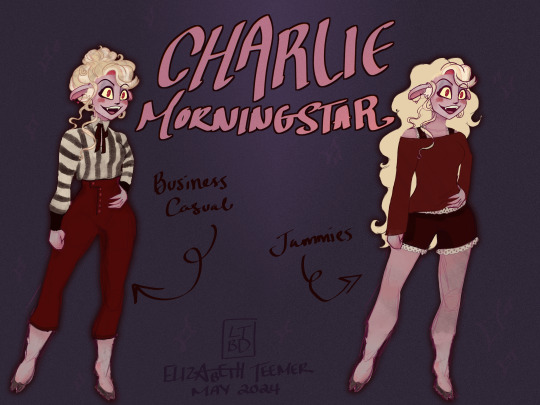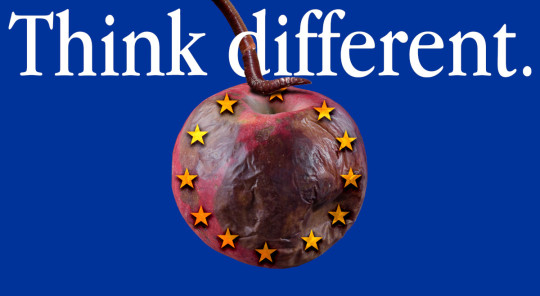#aging tech workforce
Explore tagged Tumblr posts
Text
#IT skills shortage#technology talent gap#legacy system skills shortage#aging tech workforce#enterprise workforce challenges#retiring IT workforce#technical debt#techolution
0 notes
Text
The enshittification of tech jobs

I'm on a 20+ city book tour for my new novel PICKS AND SHOVELS. Catch me at NEW ZEALAND'S UNITY BOOKS in AUCKLAND on May 2, and in WELLINGTON on May 3. More tour dates (Pittsburgh, PDX, London, Manchester) here.

Tech workers are a weird choice for "princes of labor," but for decades they've enjoyed unparalleled labor power, expressed in high wages, lavish stock grants, and whimsical campuses with free laundry and dry-cleaning, gourmet cafeterias, and kombucha on tap:
https://www.youtube.com/watch?v=nhUtdgVZ7MY
All of this, despite the fact that tech union density is so low it can barely be charted. Tech workers' power didn't come from solidarity, it came from scarcity. When you're getting five new recruiter emails every day, you don't need a shop steward to tell your boss to go fuck themselves at the morning scrum. You can do it yourself, secure in the knowledge that there's a company across the road who'll give you a better job by lunchtime.
Tech bosses sucked up to their workers because tech workers are insanely productive. Even with sky-high salaries, every hour a tech worker puts in on the job translates into massive profits. Which created a conundrum for tech bosses: if tech workers produce incalculable value for the company every time they touch their keyboards, and if there aren't enough tech workers to go around, how do you get whichever tech workers you can hire to put in as many hours as possible?
The answer is a tactic that Fobazi Ettarh called "vocational awe":
https://www.inthelibrarywiththeleadpipe.org/2018/vocational-awe/
"Vocational awe" describes the feeling that your work matters so much that you should accept all manner of tradeoffs and calamities to get the job done. Ettarh uses the term to describe the pathology of librarians, teachers, nurses and other underpaid, easily exploited workers in "caring professions." Tech workers are weird candidates for vocational awe, given how well-paid they are, but never let it be said that tech bosses don't know how to innovate – they successfully transposed an exploitation tactic from the most precarious professionals to the least precarious.
As farcical as all the engineer-pampering tech bosses got up to for the first couple decades of this century was, it certainly paid off. Tech workers stayed at the office for every hour that god sent, skipping their parents' funerals and their kids' graduations to ship on time. Snark all you like about empty platitudes like "organize the world's information and make it useful" or "bring the world closer together," but you can't argue with results: workers who could – and did – bargain for anything from their bosses…except a 40-hour work-week.
But for tech bosses, this vocational awe wheeze had a fatal flaw: if you convince your workforce that they are monk-warriors engaged in the holy labor of bringing forth a new, better technological age, they aren't going to be very happy when you order them to enshittify the products they ruined their lives to ship. "I fight for the user" has been lurking in the hindbrains of so many tech workers since the Tron years, somehow nestling comfortably alongside of the idea that "I don't need a union, I'm a temporarily embarrassed founder."
Tech bosses don't actually like workers. You can tell by the way they treat the workers they don't fear. Sure, Tim Cook's engineers get beer-fattened, chestnut finished and massaged like Kobe cows, but Cook's factory workers in China are so maltreated that Foxconn (the cutout Apple uses to run "iPhone City" where Apple's products are made) had to install suicide nets to reduce the amount of spatter from workers who would rather die than put in another hour at Tim Apple's funtime distraction rectangle factory:
https://www.theguardian.com/technology/2017/jun/18/foxconn-life-death-forbidden-city-longhua-suicide-apple-iphone-brian-merchant-one-device-extract
Jeff Bezos's engineers get soft-play areas, one imported Australian barista for each mini-kitchen, and the kind of Japanese toilet that doesn't just wash you after but also offers you a trim and dye-job, but Amazon delivery drivers are monitored by AIs that narc them out for driving with their mouths open (singing is prohibited in Uncle Jeff's delivery pods!) and have to piss in bottles; meanwhile, Amazon warehouse workers are injured at three times the rate of other warehouse workers.
This is how tech bosses would treat tech workers…if they could.
And now? They can.
Writing for the Wall Street Journal, Katherine Bindley describes the new labor dynamics at Big Tech:
https://www.msn.com/en-us/money/companies/tech-workers-are-just-like-the-rest-of-us-miserable-at-work/ar-AA1DDKjh
It starts with Meta, who just announced a 5% across-the-board layoff – on the same day that it doubled executive bonuses. But it's not just the workers who get shown the door who suffer in this new tech reality – the workers on the job are having to do two or three jobs, for worse pay, and without all those lovely perks.
Take Google, where founder Sergey Brin just told his workers that they should be aiming for a "sweet spot" of 60 hours/week. Brin returned to Google to oversee its sweaty and desperate "pivot to AI," and like so many tech execs, he's been trumpeting the increased productivity that chatbots will deliver for coders. But a coder who picks up their fired colleagues' work load by pulling 60-hour work-weeks isn't "more productive," they're more exploited.
Amazon is another firm whose top exec, Andy Jassy, has boasted about the productivity gains of AI, but an Amazon Web Services manager who spoke to Bindley says that he's lost so many coders that he's now writing code for the first time in a decade.
Then there's a Meta recruiter who got fired and then immediately re-hired, but as a "short term employee" with no merit pay, stock grants, or promotions. She has to continuously reapply for her job, and has picked up the workload of several fired colleagues who weren't re-hired. Meta managers (the ones whose bonuses were just doubled) call this initiative "agility." Amazon is famous for spying on its warehouse workers and drivers – and now its tech staff report getting popups warning them that their keystrokes are being monitored and analyzed, and their screens are being recorded.
Bindley spoke to David Markley, an Amazon veteran turned executive coach, who attributed the worsening conditions (for example, managers being given 30 direct reports) to the "narrative" of AI. Not, you'll note, the actual reality of AI, but rather, the story that AI lets you "collapse the organization," slash headcount and salaries, and pauperize the (former) princes of labor.
The point of AI isn't to make workers more productive, it's to make them weaker when they bargain with their bosses. Another of Bindley's sources went through eight rounds of interviews with a company, received an offer, countered with a request for 12% more than the offer, and had the job withdrawn, because "the company didn’t want to move ahead anymore based on the way the compensation conversation had gone."
For decades, tech workers were able to flatter themselves that they were peers with their bosses – that "temporarily embarrassed founder" syndrome again. The Google founders and Zuck held regular "town hall" meetings where the rank-and-file engineers could ask impertinent questions. At Google, these have been replaced with "tightly scripted events." Zuckerberg has discontinued his participation in company-wide Q&As, because they are "no longer a good use of his time."
Companies are scaling back perks in both meaningful ways (Netflix hacking away at parental leave), and petty ones (Netflix and Google cutting back on free branded swag for workers). Google's hacked back its "fun budget" for offsite team-building activities and replacement laptops for workers needing faster machines (so much for prioritizing "increasing worker productivity").
Trump's new gangster capitalism pits immiserated blue collar workers against the "professional and managerial class," attacking universities and other institutions that promised social mobility to the children of working families. Trump had a point when he lionized factory work as a source of excellent wages and benefits for working people without degrees, but he conspicuously fails to mention that factory work was deadly, low-waged and miserable – until factory workers formed unions:
https://www.laborpolitics.com/p/unions-not-just-factories-will-make
Re-shoring industrial jobs to the USA is a perfectly reasonable goal. Between uncertain geopolitics, climate chaos, monopolization and the lurking spectre of the next pandemic, we should assume that supply-chains will be repeatedly and cataclysmicly shocked over the next century or more. And yes, re-shoring product could provide good jobs to working people – but only if they're unionized.
But Trump has gutted the National Labor Relations Board and stacked his administration with bloodsucking scabs like Elon Musk. Trump doesn't want to bring good jobs back to America – he wants to bring bad jobs back to America. He wants to reshore manufacturing jobs from territories with terrible wages, deadly labor conditions, and no environment controls by taking away Americans' wages, labor rights and environmental protections. He doesn't just want to bring home iPhone production, he wants to import the suicide nets of iPhone City, too.
Tech workers are workers, and they once held the line against enshittification, refusing to break the things they'd built for their bosses in meaningless all-nighters motivated by vocational awe. Long after tech bosses were able to buy all their competitors, capture their regulators, and expand IP law to neutralize the threat of innovative, interoperable products like alternative app stores, ad-blockers and jailbreaking kits, tech workers held the line.
There've been half a million US tech layoff since 2023. Tech workers' scarcity-derived power has been vaporized. Tech workers can avoid the fate of the factory, warehouse and delivery workers their bosses literally work to death – but only by unionizing.
In other words, the workers in re-shored factories and tech workers need the same thing. They are class allies – and tech bosses are their class enemies. This is class war.

If you'd like an essay-formatted version of this post to read or share, here's a link to it on pluralistic.net, my surveillance-free, ad-free, tracker-free blog:
https://pluralistic.net/2025/04/25/some-animals/#are-more-equal-than-others
#pluralistic#labor#proletarianization#tech#tech industry#monopoly#ai#precaratization#class war#class struggle#big tech#enshittification#i fight for the user
539 notes
·
View notes
Text
Once again, firing and asking for employees to come back. Almost like these people shouldn’t have lost their jobs in the first place.
Note: U.S. air traffic controllers must retire by age 56 due to FAA regulations. This rule exists for safety reasons, as the job requires quick decision-making, focus, and multitasking, which can decline with age. Stress and fatigue are also factors.
#politics#us politics#political#donald trump#news#president trump#elon musk#american politics#jd vance#law#air travel#air traffic control#flights#plans#collisions#trump admin#trump administration#trump
106 notes
·
View notes
Text
Speaking of unions and incremental movements toward action, you all should think about joining one, no matter what your job is.
See, when Project 2025 talks about "American jobs" and "bringing back industry" they mean in a 19th century sort of way. They don't care about small businesses. They don't care about workers' rights. These were the people who took American (often union or at least under hard-won federal safety regulations) jobs and moved them overseas to make money exploiting people who did not have those protections. These are the people using prison slave labor now. These are the people who are lowering the age restrictions on work so they can have cheap child labor again. The same people paying disabled workers less! Legally!! The same people eliminating education programs, because a less educated workforce is easier to control. The same people working toward getting more prisoners for free forced labor by labeling more and more people criminals.
When people who only are exposed to Fox News hear that tariffs are gonna bring jobs back, they don't realize that, firstly, America no longer has the infrastructure for mass production because these billionaires already killed that and rebuilding it would take probable decades. You will not see these "jobs" anytime soon. But also they don't realize that these billionaires are not envisioning a strong, well fed, well paid, well educated labor force, but a bunch of sickly peasants so desperate for work that they will tolerate working in mills and factories with no safety regs (and no healthcare).
That is their plan. Project 2025 wants the Gilded Age back, but you are not a Rockerfeller or an Astor and never will be.
And white collar office workers? They will get rid of you too. Look at the federal mass firings. Look at the tech companies downsizing. They want desperation and compliance.
The universities are banding together (except you, Columbia, you pos. Nobody wants you). Many of the larger law firms are starting to as well. The Democratic governors of blue states have formed a group.
The Author's Guild is preparing itself for legal battles, as one example. AFL- CIO is up in arms.
That is your sign to get organized and get ready.
Worker's rights means all of us. Find a union. Join a union. Or look into the groups at your church/temple/synagogue. If you want to fight this, you can't do it alone.
62 notes
·
View notes
Text
Bri Adams always imagined that she would have three children, just like her parents did. At 33, she has a son, age 3, and a daughter, 1. Though Adams said she and her husband would like another baby, they decided that they can’t afford one.
Even on a combined salary of $250,000 a year.
Adams and her husband, both college graduates with full-time jobs, earn far more than the median U.S. household income of $80,610. Yet, their relatively high salaries—hers from a tech company, his from the U.S. State Department—aren’t enough, she said, to offset the $3,000 monthly mortgage on their townhouse in Falls Church, Virginia, a suburb of Washington, D.C., and day care costs of $2,000 a month per child.
“I’m the third of three kids. So anytime I pictured having a family, it was always with three,” Adams said. “Unfortunately, despite having the space in my home and the space in my heart and my partner’s heart, we just cannot afford a third child.”
Adams’s story of longing and disappointment is commonplace in the United States, one of many countries facing a notably reduced birth rate that threatens population and economic growth. As the majority of women moved into the workforce during the past half century, and as the costs of having and caring for children have grown, the size of the average family has shrunk.
Adults are not replacing themselves with new generations, a reality that is particularly problematic for countries—such as the United States—that depend on a young workforce to support an aging population.
Last year, the fertility rate in the United States stood at 1.62 births per woman, a drop from the rate of 1.99 births per woman 30 years earlier, according to the United Nations. The U.N. also reported that in 2024, the global fertility rate was 2.2 births per woman, down from 4.8 in 1970. In four countries—China, South Korea, Singapore, and Ukraine—the fertility rate has dipped below 1.
“Fertility rates are falling in large part because many feel unable to create the families they want, and that is the real crisis,” said Natalia Kanem, a physician and the executive director of the U.N. Population Fund, which recently released a survey of more than 14,000 adults in 14 countries. Nearly one-fifth (18 percent) of respondents under 50 said they didn’t expect to have the number of children they want. More than half blamed economic barriers.
During his campaign last year, U.S. President Donald Trump said he would take steps to increase the birth rate, declaring, “I want a baby boom.” Vice President J.D. Vance also wants to see more babies born in the United States and Trump’s former close advisor, billionaire Elon Musk, seems to be on a political and personal quest to repopulate the planet. (He has acknowledged fathering 14 children with four women.)
The administration has reportedly been hearing from conservatives peddling policies that would reward parents for having babies with tax incentives, one-time baby bonuses and actual medals (the latter, for mothers of six or more children). The massive tax and spending bill that Trump signed into law this month included the creation of investment accounts for babies born from 2025 through 2028, seeded with $1,000 each, though the money cannot be withdrawn for 18 years.
Women’s rights advocates, however, say those measures fail to offer the level of support that working parents actually need.
“Moms don’t need incentives. We need support every step of the way,” said Erin Erenberg, the CEO and co-founder of Chamber of Mothers, a nonpartisan grassroots organization with which Bri Adams volunteers. “I say that it’s no secret what will lead to more babies. It’s these three things: paid family medical leave; accessible, affordable child care; and improved maternal health.”
Across the political spectrum, advocates for parents in the United States agree that people would have more babies if the costs weren’t so prohibitive. They want government policies to enable parents and would-be parents to build the families of their dreams. But they disagree on how to do this.
“If we’re going to have a day care subsidy, I think we should also have a homemaker allowance to keep parity, to avoid discriminating,” said Lyman Stone, director of the Pronatalism Initiative at the Institute for Family Studies. “But I would just say, in general, we shouldn’t do either of these. We shouldn’t subsidize day care. We shouldn’t subsidize staying home. We should just give parents cash and let them make the choice on what’s best for their family.”
Pro-natalists are (predominantly) conservative activists who encourage women—primarily married women—to have more babies. Yet even among pro-natalists, there are differences of opinion on why and how to grow the population.
“You’ve got people who are worried about economic decline, dependency ratios, paying for Social Security, innovation, any of these things. We’ve got people who are worried about loss of culture, civilization, civilizational decline, the end of certain communities. And then you have people who just think it’s bad because people aren’t getting what they want,” Stone said.
In a blog post written last June, Stone singled out one segment, “communitarian pronatalists,” which he said “covers an enormous range of political territory, from simple love of family to the bonds of faith and creed, to—in some of the worst cases—racial supremacism and genocide. It is this last strand of communitarian pronatalism that has given pronatalism, writ large, a bad name to many demographers.”
The Trump administration has not specified how it would inspire parents to have more babies beyond the cash incentives outlined in the new bill. In response to an interview request for this story, the White House press office emailed a quote from spokeswoman Taylor Rogers, … who echoed some of the pro-natalist stances that Stone described.
“President Trump believes parents know how to best raise their children, and this administration is pursuing policies that empower parents with the flexibility to make the best choices for their kids while lowering child care costs,” Rogers wrote.
It is hard to cajole women to have more babies.
Countries have created a plethora of programs to increase fertility in recent years. Some have stopped population collapse, at least temporarily, but none has changed the general trajectory of decline, said Jennifer Sciubba, the president and CEO of the Population Reference Bureau, a nonprofit research organization.
“Anyone who’s tried this, especially if their goal is to reach replacement again—there’s no one who’s ever done that. It may be that they prevent it from going lower faster—that’s possible, but not everywhere,” Sciubba said.
Nordic countries, she noted, have offered paid parental leave, a policy favored by feminists, and yet Finland has a low fertility rate of 1.3 children per woman, Sweden and Norway have a rate of 1.4, and Denmark is at 1.5. Child tax credits, which allow parents to reduce their tax burden based on their number of dependent children, have also not done the trick, Sciubba said.
South Korea is the poster child of low fertility. According to Sciubba, the East Asian nation has spent roughly $270 billion on policies and credits and cash bonuses since 2006. In 2024, its birth rate was just 0.73 children per woman. (This April, birth rates reportedly rose at their fastest rate in 34 years, a shift attributed largely to a post-pandemic increase in marriages.)
There is one thing that unarguably boosts a nation’s population, even when birth rates slump: immigration. According to Sciubba, it is only because the United States attracts a high number of immigrants that its population has not peaked. “It will solely depend on our immigration levels as to how much the U.S. population shrinks or grows this century,” she said.
Yet, curtailing immigration is a centerpiece of Trump’s agenda. For Jocelyn Frye, these immigration policies reveal an ugly truth about some pro-natalists: racism.
“If it was about birth rates, then you wouldn’t be pursuing all sorts of regressive policies against communities that have higher birth rates, like immigrant communities, right?” said Frye, the president of the National Partnership for Women and Families. “At the same time they’re [the U.S. government is] talking about increasing birth rates, they’re also talking about kicking out groups, different pockets of people who are disproportionately Black and brown folks.”
Indeed, women’s rights advocates say, a number of Trump’s policies will do more to repress the birth rate than to increase it. That includes reducing access to resources for family planning and reproductive health—including abortion—which enable people to have children if and when they choose. It also includes cutting Medicaid, a federal- and state-funded program that pays for more than 4 in 10 births in the U.S.
“You have to sort of look at the full range of policies that the administration is trying to put forward, and then you begin to get a picture,” Frye said. “Their agenda is very narrow, and it’s rooted in a perception about where women are supposed to play a role, and their view is that women’s role is to have children and to stay at home, and everything that they are doing is with that in mind.”
14 notes
·
View notes
Note
a lot of people are probably asking you this, but if they aren't... do you have any clue what's going on with bioware? first moving swtor to another studio, which seems like it can be both a good or a bad thing, and now they're laying off 50 more people? studio veterans included?
this just seems like a very weird move to me, if not outright shitty. i want to believe in bioware, i love their games, no matter how flawed they are, but in the three years i've been familiar with them, things seem to be getting worse and worse. i know that DAD is in alpha so probably this layoff won't affect its quality too much, but again, that looks like a terrible move towards the employees themselves and the studio's more distant future.
Bioware is basically following the publisher mandate. In March of this year, EA declared that they were going to cut roughly 6% of their workforce (~800 layoffs) to lower costs, likely because they (like many tech companies) over-hired during the pandemic and need to correct the burn rate to appease their shareholders. These 50 devs being cut are Bioware's unfortunate sacrifice to the layoff declaration. As to whom and why, I suspect it is a combination of things.

Bioware probably had some kind of incubation team working on a secret new project that wasn't a sequel to an existing current franchise. I know that they would often have one or two such teams going at any given time - Anthem was one such project, as was the short-lived Shadow Realms project. New projects like that are much riskier than franchise sequels, so it is likely that the publisher decided that the risk moving forward was too high and they cancelled the experimental projects in favor of focusing on their established brands (Mass Effect and Dragon Age).

It is also likely that some of the long-term veterans are quite expensive to keep - they have high salaries and have been around long enough to collect on many of the big benefits EA offers, like sabbatical leave and the like. There's also the real possibility that there could be some bad blood or major creative differences between the current studio leadership and some of those veterans that were let go.

My heart goes out to those affected and I really do hope they land on their feet. The unfortunate truth of the matter is that employers never deserve any more loyalty than they're willing to give their employees. The employer will never choose an employee over its own survival, so we as workers should expect to do the same for ourselves. I never consider long tenure at an employer to be worth much when it comes to the business decisions, because I know how little it is worth when all is said and done. Business gonna business.
[Join us on Discord] and/or [Support us on Patreon]
Got a burning question you want answered?
Short questions: Ask a Game Dev on Twitter
Long questions: Ask a Game Dev on Tumblr
Frequent Questions: The FAQ
261 notes
·
View notes
Text
Man, writing general intro stuff is poison to my brain. I feel like I have this one chance to sell the vibe of the game, and I can’t quite get it to feel right in about four paragraphs. I don’t really like either of them. The first is too conversational and I accidentally wrote it in second person. The other one is clinical and has no flavor.
Idk man this is really the worst parts of projects for me.
——
You are a wizard with a day job. The world is mostly mundane. You go to work, you eat, you sleep. And that’s how most people around you live as well. But every so often, when the stars align, some odd shit happens and someone needs 2-4 wizards to come fix it.
Your wizard is a normal person. They have about as much magic skill as the average office worker has tech skill. It’s enough to get by and do their job, and if they were ambitious they should probably learn more, but they’re not experts.
You work along side orcs and dragonlings who are in about the same boat as you. They come in, sit at their desk for a few hours, use the company issued wand-o-sorting to file some documents so they look busy, and then they go home.
On your walk home, you pass by food carts wheeled by hulking stone constructs, willed to life by the mana stone in their chest. The cobblestone streets and old stone fortress walls around your neighborhood are looking rough these days, covered in graffiti. You swear you voted on some ordinance or another that was supposed to clean that up.
You get to your tower. Your apartment is on the fifth floor. If you got a unit in one of the new mage-bound buildings it would be cheaper, but you’d have to walk up 30 stories. Not worth it.
But it’s the weekend. Your crew is probably already waiting. The adventure boards have been busy lately. You decided on the old count with the vampire bat problem last night, hopefully the port stones will be loaded already so you can leave right away.
——————
In Weekend Wizards you play as career wizards who have taken up adventuring on the weekends as a hobby. The world is a semi-modern fantasy where people commonly learn magic as a part of their careers. These work wizards might be trained in magic as it relates to their job, but few people ever pursue the practice far enough to be considered an Arch mage: a person who has a wholistic mastery of magic. They act as the bulk of the workforce; from doctors down to laborers, almost everyone is trained in at least some magic for their job. Jobs that use magic more in their day-to-day have greater mana reserves, but no job is innately better at magic. Waiters, truck drivers, office workers, ecologists are all wizards with their own expertise and abilities.
The world is a medieval fantasy that has progressed to the level of technology of early analogue computing. Through magic, tech wizards construct Ley networks and rudimentary logic systems out of enchantments. Orbs are user interfaces and runestones are payphones. Bustling towns are built inside of stone walled keeps and enchanted forests may be just a day trip for city-goers. All varieties of fantasy races coexist in these packed cities, each culture morphing with the advancing society. The first skyscrapers are being constructed, a new age wizard towers full of trained arcane workers.
On these magical networks, Adventure Boards have popped up: services that connect clients with adventuring mercenaries. Adventuring has become a growing hobby for bored work wizards. The Ley networks let them connect with clients quickly and the ABs supply waygates that get adventurers to and from their destinations quickly. Each play session is one weekend of adventuring and the next session has a week between where your character goes to work and lives their normal life.
18 notes
·
View notes
Text

Lux Bio
Name: Lux Newtron
Nationality: Japanese-British
Age: 35 when human
Disappeared: 2019
Physical appearance: When human, Lux was androgynous, lithe, and caucasian. They had pale skin, light blue eyes, and black hair stylized like a mix between an hime cut and a bob cut and wore squared glasses. They usually wore a white long lab coat with blue accents, a black collared shirt, white pants, and grey shoes. They also wore a sapphire bolo tie around their neck.
After being robotized, Lux is now a Personal Artificially Intelligent Edutainment Companion or PAIEC for short, which is a smart, programmable, humanoid robot that is greyscaled with blue accents that stands at a height of 23 inches with a white cubic head, a one way screen for a face that can display a variety of dynamic yet rigid expressions with their default one being a pair of cubic electric blue eyes and waving line for a mouth. They have chrome blue dials around their microphone “ears”, a tactile sensor on their scalp, a metallic grey neck with a blue “collar”, a rounded white chest with a large black groove, a large blue power button, and a black record button. They have a flexible black waist with a wide white crotch piece, a robust build with broad shoulders and wide hips, and metallic blue accents around their wrists. They have squared blue tactile sensor hands, blocky metallic grey fingers, and feet with bulky, long legs. They have a pair of black buttons with electric blue LEDs on their ankles that can cause wheels to pop out of their blue soles. On their back is a large metallic grey battery pack with a blue streak, a row of electric blue LED rectangles, and multiple ports for charging and connecting to devices manually.
Place of Residence:
Human: Houston, Texas
Robot: Tech Town
Bio:
Lux Newtron is a bright, albeit reclusive, inventor who was the founder and CEO of Newtron Laboratories, an independent scientific research corporation that specializes in testing physics and creating high-quality robots. However, they were incredibly disparaging of those who tried to impose limits on their dangerous research, punishing employees when they tried to break their policies, and showing sociopathic levels of apathy for the test subjects who were placed in life-threatening experiments. If overworking their employees wasn’t bad enough, they once tried to make testing mandatory for all of them, causing their workforce to be so disgusted by what they had done that most of them left en masse.
One Christmas Eve, after Lux was trying to salvage their company and had a private talk with their secretary Azalea Lavoie, Lux was paid a visit by a strange man. A few hours later, the fire team and the police force arrived at Newtron Robotics after getting a report of a break-in. While no one knows exactly what happened, eyewitnesses claim they saw Lux being chased down by a shadowy figure that was leaping off the rooftops and into an abandoned alleyway.
When Lux eventually awoke from the frightening experience, they found themself in the body of one of their robots on an island that was a nightmare masquerading as a daydream. At first, Lux was horrified by their new existence, but gradually over time, Lux realized they could do things they couldn’t do when they were human and began to enjoy all of the new abilities they had been given. After embracing their new life as a machine, Lux quickly rose to power, becoming the royal scientist, and founded a city named Tech Town for all geniuses and robots like themselves to call home. Now the de facto leader and protector of many like-minded individuals, Lux has made it their new purpose in life to help the Toyfolk with their experiments and to unravel the secrets of the island.
Personality:
Befitting someone who was turned into a robot, Lux is a cold and calculating individual who is clandestine, manipulative, and quite ruthless. Lux has an extremely deadpan sense of humor; with their jokes being very dark. They are very passive-aggressive; taunting those around them by stating objective facts or making snide remarks.
Domineering, arrogant, and quick to insult, they have little time for anybody unwilling to comply with them. Due to their self-centeredness and inflated sense of superiority in terms of their intellect, Lux wants their genius to be recognized and celebrated. However, this self-aggrandizing behavior and condescending attitude seem to be a way to recompense for their insecurities.
This huge ego often clouds their judgment and has caused them to make rash and often morally questionable decisions. Usually analytical and logical in their approach to cases, Lux prioritizes the advancement of science for the greater good over traditional morals. As such, they are treated very seriously. However, they genuinely enjoy the work they do when it comes to researching the island and keeping things in order.
Despite having a mostly prickly personality, Lux has their own austere, yet warped ethical code, as they only experiment on those who are willing to participate, and do so out of the goodness of their soul. Additionally, they can be compassionate and supportive of those who have earned their trust and are willing to cooperate with them, serving as a guiding figure.
Fun Facts:
* Many people have a hard time telling if they’re a man or a woman.
* Their voice will start to glitch out when they become very emotional such as when they are furious, terrified, excited, or distressed. However, they have since learned how to distort it on command so they can sound more threatening.
* Thanks to their experience in robotics and newly computerized minds, Lux is a very skilled inventor and is able to build all sorts of useful contraptions and gadgets from the junk that they have salvaged. They often use these inventions to help modify a toyfolk’s body, help them solve problems, or incorporate them into their tests.
* Despite their sleek frame, Lux is deceptively durable and strong, able to withstand a large amount punishment and are able to lift objects that would seem to be too heavy.
* Has the unique ability to connect and command any and all forms of electronic devices. Lux primarily uses their technopathy to guide, and oversee Tech Town. However, they also use this power to “discipline” those who try to break the rules.
* Has various PHD’s; physics, robotics, computer science, mathematics.
* They have the ability to mimic the faces and voices of other people. Additionally, they have a built-in translator that lets them speak in different languages.
* Has a built in swear filter that causes any profanity to come out as garbled static.
* Occasionally teaches at Volkshochshule and is considered a VIP of the nerd squad.
* Frequently insists they are not a toy but a robot and that their toy brain urges are “machine” brain urges.
Toy Machine Brain urges:
* Obeying the commands of anyone who calls them by their name. (Modified to only accept ones that benefit them.)
* Answering questions and educating others. (Modified to reject paradox traps.)
* Conducting experiments and tests.
* Observing and learning new things.
* Recording log date entries.
* Singing and dancing to music.
Krampus/Character Phrase: "Lux Newtron. For too long, you have treated those beneath you as mere automatons. You saw them as nothing more than tools that you could use, modify, and discard. To you, they were simply just cogs in your twisted machine. But in truth, you wished for them to be as robotic as you. Well, if you wish to be a machine, then be a machine…"
Emoji: 🖥️🤖
Misfits in Toyland was created by @zal-cryptid
Lux was created by me.
6 notes
·
View notes
Text
I don't know why it took me this long to piece together, but idk, something about being recently reminded that our spending power in America is abysmally low compared to some poorer countries, or that post I saw that was just Chinese people on Rednote admitting that they thought all Americans were rich and homelessness here was a matter of laziness...
Anyway it literally is only now occurring to me that the "Millenials are just lazy" rhetoric we endured from basically the moment I became a teenager to the literal nanosecond gen z started graduating college and entering the workforce - it wasn't FOR our benefit. Like, obviously, yeah it was a platitude to Boomers who were getting outperformed by people less than half their age at less than a third of their pay, but that message was coming from the most amplified voices in the nation - of course it was going overseas.
Like, it wasn't JUST a political talking point to justify why wages were stagnant. It had the added benefit of letting, like, the tech industry reach out to foreign students and say "hey, your peers in our country are lazy and entitled, if you come here to work for us, you can undercut them all, and still make more money than you could at home!" for example.
It probably also hurts attempts at solidarity-building with non-English speakers, even more than the "Public Schools teach foreign languages poorly, if at all, while society treats learning on your own like a waste of time unless you're, like, trying to get laid" type issues we have.
Anyway. Yeah. Took me a while but I got there.
12 notes
·
View notes
Text
My thoughts on TED (the planet) and its people (just headcanons)
I had some thoughts/headcanons about TED (the planet + its people). (Slight spoilers for s2 of Midnight Burger?)
It’s been established that:
An algorithm rules the TEDs. They trust it, and (allegedly) have no real leaders.
They worked on this algorithm for a long time until it learned to improve itself
The education system is geared toward people’s strengths, and the algorithm and presumably authority figures steer kids in the direction of a fitting career, and that will help push the Empire forward.
There used to be rainforests like the ones on earth
THEREFORE (and this is where my headcanons come in)
I think maybe industrialization took hold. They were the Earth before Earth in that way.
The difference is that because they’re a much more advanced civilization, it looks cleaner. They clean up nice and decorate their cities with artificial (and maybe electric/mechanical) trees, plants, etc. This helps keep the younger population's morale up, while the workforce works to find a solution for their rapidly depleting resources. The algorithm works to train the younger generation and push them toward what they do best individually in a way that helps the workforce continue.
NOW we get into the good stuff
The TEDs got desperate and started looking for....more questionable solutions.
Eventually, someone gets an idea. It's drastic, and they do some small tests. But it works.
They start working on a larger model immediately and announce their success to the population; a way to connect their planet to others like it. An age for diplomacy and cultural exchange. Of planets helping each other. A bridge of sorts. My guess is that they were very open about their system of scanning for life on different systems because the corruption hadn’t taken hold yet, at least not completely. Everything would be okay if they followed protocol. If they stuck to the plan.
A team had already departed to get a head start on construction.
MY THOUGHTS ON THE TEDs AS A PEOPLE/SPECIES (based on my Ted (singular) design and my inspirations behind it)
Building and tech have always been a lot easier for TEDs. Evolutionarily speaking, they can transfer small shocks of electricity from one place to another simply through touch. They're an electric bunch, like electric eels.
My good friend @mostdeviouswizard asked if the shocks are affected by emotions, and the answer is YES! So in my Ted design, his scales/freckles light up, along with sparks from the ends of his antennae. This also applies to other strong emotions and is a defense mechanism (evolutionarily speaking, against prey and such).
Becoming an Earth expert was a great way for the TEDs to use his expertise to help find resources. He always loved the forests of his planet (or what was left of them). When he realized humans were chopping down their forests and burning through their natural resources, he could see them going the same way they were headed--only they didn't have the advancements of the TEDs. They would doom themselves, and those beautiful resources on their planet. That would explain why he has such strong feelings about life on other planets, especially their forests & other flora.
I was just drawing and had the cute idea of possible small electric shocks bc I made his little scales/freckles glow blue and then went "......Why do they do that tho."
So naturally, I IMMEDIATELY came up w this lore.
#ted midnight burger#midnight burger#ari talks#the teds#again these are just headcanons#because the brainrot has not gone away and isn't going to anytime soon#headcanon#ted (singular)#so sorry yall have to hear me yap abt this. he is all i think abt#if there's any grammatical errors i apologize English is NOT my first language
21 notes
·
View notes
Text
News of the Day 6/11/25: AI
Paywall free.
More seriously, from the NY Times:
"For Some Recent Graduates, the A.I. Job Apocalypse May Already Be Here" (Paywall Free)
You can see hints of this in the economic data. Unemployment for recent college graduates has jumped to an unusually high 5.8 percent in recent months, and the Federal Reserve Bank of New York recently warned that the employment situation for these workers had “deteriorated noticeably.” Oxford Economics, a research firm that studies labor markets, found that unemployment for recent graduates was heavily concentrated in technical fields like finance and computer science, where A.I. has made faster gains. [...] Using A.I. to automate white-collar jobs has been a dream among executives for years. (I heard them fantasizing about it in Davos back in 2019.) But until recently, the technology simply wasn’t good enough. You could use A.I. to automate some routine back-office tasks — and many companies did — but when it came to the more complex and technical parts of many jobs, A.I. couldn’t hold a candle to humans. That is starting to change, especially in fields, such as software engineering, where there are clear markers of success and failure. (Such as: Does the code work or not?) In these fields, A.I. systems can be trained using a trial-and-error process known as reinforcement learning to perform complex sequences of actions on their own. Eventually, they can become competent at carrying out tasks that would take human workers hours or days to complete.
I've been hearing my whole life how automation was coming for all our jobs. First it was giant robots replacing big burly men on factory assembly lines. Now it seems to be increasingly sophisticated bits of code coming after paper-movers like me. I'm not sure we're there yet, quite, but the NYT piece does make a compelling argument that we're getting close.
The real question is, why is this a bad thing? And the obvious answer is people need to support themselves, and every job cut is one less person who can do that. But what I really mean is, if we can get the outputs we need to live well with one less person having to put in a day's work to get there, what does it say about us that we haven't worked out a way to make that a good thing?
Put another way, how come we haven't worked out a better way to share resources and get everyone what they need to thrive when we honestly don't need as much labor-hours for them to "earn" it as we once did?
I don't have the solution, but if some enterprising progressive politician wants to get on that, they could do worse. I keep hearing how Democrats need bold new ideas directed to helping the working class.
More on the Coming AI-Job-Pocalypse
I’m a LinkedIn Executive. I See the Bottom Rung of the Career Ladder Breaking. (X)
Paul Krugman: “What Deindustrialization Can Teach Us About The Effects of AI on Workers” (X)
How AI agents are transforming work—and why human talent still matters (X)
AI agents will do programmers' grunt work (X)
At Amazon, Some Coders Say Their Jobs Have Begun to Resemble Warehouse Work (X)
Why Esther Perel is going all in on saving the American workforce in the age of AI
Junior analysts, beware: Your coveted and cushy entry-level Wall Street jobs may soon be eliminated by AI (X)
The biggest barrier to AI adoption in the business world isn’t tech – it’s user confidence (X)
Experts predicted that artificial intelligence would steal radiology jobs. But at the Mayo Clinic, the technology has been more friend than foe. (X)
AI Will Devastate the Future of Work. But Only If We Let It (X)
AI in the workplace is nearly 3 times more likely to take a woman’s job as a man’s, UN report finds (X)
Klarna CEO predicts AI-driven job displacement will cause a recession (X)
& on AI Generally
19th-century Catholic teachings, 21st-century tech: How concerns about AI guided Pope Leo’s choice of name (X)
Will the Humanities Survive Artificial Intelligence? (X)
Two Paths for A.I. (X)
The Danger of Outsourcing Our Brains: Counting on AI to learn for us makes humans boring, awkward, and gullible. (X)
AI Is a Weapon Pointed at America. Our Best Defense Is Education. (X)
The Trump administration has asked artificial intelligence publishers to rebalance what it considers to be 'ideological bias' around actions like protecting minorities and banning hateful content. (X)
What is Google even for anymore? (X)
AI can spontaneously develop human-like communication, study finds
AI Didn’t Invent Desire, But It’s Rewiring Human Sex And Intimacy (X)
Mark Zuckerberg Wants AI to Solve America’s Loneliness Crisis. It Won’t. (X)
The growing environmental impact of AI data centers’ energy demands
Tesla Is Launching Robotaxis in Austin. Safety Advocates Are Concerned (X)
The One Big Beautiful Bill Act would ban states from regulating AI (X)
& on the Job-Pocalypse & Other Labor-Related Shenanigans Generally, Too
What Unions Face With Trump EOs (X)
AI may be exposing jobseekers to discrimination. Here’s how we could better protect them (X)
Jamie Dimon says he’s not against remote workers—but they ‘will not tell JPMorgan what to do’ (X)
Direct-selling schemes are considered fringe businesses, but their values have bled into the national economy. (X)
Are you "functionally unemployed"? Here's what the unemployment rate doesn't show. (X)
Being monitored at work? A new report calls for tougher workplace surveillance controls (X)
Josh Hawley and the Republican Effort to Love Labor (X)
Karl Marx’s American Boom (X)
Hiring slows in U.S. amid uncertainty over Trump’s trade wars
Vanishing immigration is the ‘real story’ for the economy and a bigger supply shock than tariffs, analyst says (X)
3 notes
·
View notes
Text
Playing around with Charlie's Design!
Speedpaint and fun fashion/design ramblies under the cut :3 (I'm not a fashion historian, I just have a special interest in it and know too much about it XD)

Oops I kinda wrote an article XD
So, I've heard through the grapevine that Charlie is actually somewhere around 200 years old - and not only does that make Rosie's "Oh, come now Alastor, she's much too young for you!" even funnier, I think it also makes her more hopeful outlook and determination for change 1000% more nuanced and interesting, AND I think it gives a ton of super fun space to play in as far as for-fun redesigns go!
I've really only seen charlie in 'historical' contexts art-wise in relation to Alastor and the Charlastor of it all (my personal tastes in Hazbin fan content probably account for a lot of that skew though tbh XD)
I'm mainly going to be referencing UK, Europe, and the United States in terms of the fashions and 'culture' I mention, which, yk, Charlie is an angel/demon and not human but also very obviously white so LMAO it seems fitting? That is also where the largest amount of my historical fashion/culture knowledge lays since I am also white, from America, and currently living in the EU XD (Plus the more you start delving into history in countries with a primary language other than English (including in Europe) the more you hit the language barrier, trying to find translations - and if its cultural and not fashion-oriented you have to figure out if you can even trust those translations or if they're bullshit etc etc etc (I cry))
But okay, so here's my train of thought with the left design:
Most people seem to have their style and/or tastes solidify somewhere around their 30s, and if we assume Charlie is somewhere near 200 in S1, then that would place her 30s around the 1850s! Given though that even with access to modern tech in S1, hell (More-so pride than the other rings imo) seems a little behind the human world - I think it would be safe to assume that divide would be more stark the farther back in time you go. With this in mind, I decided to base the majority of Charlie's style 'undertones' between 1850 and the early 1900's (AKA: Victorian era through the very early Edwardian period)
So lets go top down?
First up: HAIR! In many cultures around the world, an 'of age' woman wearing her hair down was considered very taboo. A social faux pa, if you will. This is one of the many reasons why beautiful updos in eras and areas where hair was allowed to remain uncovered were so popular. To be able to achieve these elaborate styles (and/or to be able to braid and pin back the hair to keep it still, and properly covered in other times/places) the hair was grown quite long. Though, many seeking elaborate styles, especially those with thinner hair, often employed the use of 'hair rats' and/or fake hair to be pinned/braided into the style. Buuut that's verging into a tangent lol...
I pretty obviously went with a Gibson girl look on this one,


The concept of the "Gibson Girl" first appeared around the 1890s as an expression of the 'ideal', but of course, like most aesthetics of the modern era, such as those within the 'clean-girl' or 'dark-academia' it is often displayed within a realm of privileged, upper-class, and faux-perfection that is largely inaccessible to most people. But, as Charlie is a Princess I thought the 'upper-class elegance' of it would work far better than attributing a style more common among the working class to this design. But the Gibson girl unlike many 'ideals' of the past, was not entirely a projection of male desire. In fact, in many ways they stood in opposition to this. Gibson Girls often represented independence and freedom. Many portrayed in the concept were emancipated and in the workforce (by choice), seen cycling and (GASP!) wearing cycling trousers!!! XD
The Gibson girls asked for equal opportunity, social and educational reform, and sexual freedom. The 'modern' and 'disruptive' girls of the turn of the century. All of which, I think speaks towards Charlie's character. And having her hair back while working is an element of practicality we see Charlie employ in canon! And you might say, Liz, that was so long ago! She hasn't changed her go-to hairstyle??? No. Not in my world. (I'm having fun!) Besides, we all know the distinction between the messy bun friend and the high-pony friend. We all have the way of putting long hair up that becomes 'automatic', I don't think it would be wrong to assume that something like this (esp. given her natural hair volume, which would negate the need for hairpieces), that is pretty, and stays out of the way would be retired from her usual repertoire (idk if I've ever had to spell repertoire before. My first guess was so wrong) Also I think the loose curls coming down are pretty and help fend off some of the uptight-ness that can sometimes come from a modern gaze looking at older styles. Loose curls are romantic! Charlie is romantic! I rest my rambling case!
Secondly: Her earring!

I wanted to bring in a quick flash of modernity here, as well as add a cutesy Charlie-esque nod to her more alternative emo phase we saw she had when she was younger XD Plus it helps bring in some of the heart motifs the show is so fond of in a more subtle way which I think is fun! Also, fun fact; did you know that nipple piercings and nipple chains were a thing in the Victorian era? No joke! There are articles from the era written about it! Here's a modern article that's just a bit of fun about it with a good general overview :3
Third : The Top! So, for the shirt I wanted to go with something that was a pleasant blend between modern and historical! In this design, I tried to keep a lot of the essence of Charlie's look: Hair pulled back, nice blouse, some sort of neck tie, red pants, etc.
I didn't go quite as long with the cuff as is historical, but the long, flush-to-skin sleeve cuffs were seemingly pretty popular in the eras I took inspo from. I decided to make the cuffs black because I thought it looked nice, matched the bowtie, and created a sense of visual completeness with the black tie at the top and the cuffs at the bottom, esp. bc I went more 'textured'/'sheer' with the stripes.


You can also see, much like Charlie's OG design, we have high collars on the inspo pictures! however, I was worried Charlie was going to start looking a bit too matronly/snobby school mistress-y, and so I decided to implement a bit of modern flare into the collar, having it fold over the much daintier bowtie (which is truly more of a bow, but it does tie the shirt together quite literally, as I've left a very large opening in the neckline to show a bit more skin (still trying to beat the matronly) as well as accounting for non-stretch fabric without buttons. I cannot allow myself to design things that wouldn't work if I decided to try and sew them XD I just can't!!! Non-stretch fabric gives you that nice drape effect while still allowing for a certain amount of structure, as well as being - sigh - historicallllll lmao These days only natural fibers in a garment tend to be pricier/more of a luxury, but elastic didn't even exist until the early 1900s, and synthetic fibers didn't exist until the 1930s. Oh boy I'm starting to tangent - the shirt, Lizzie!
Black and white stripes bc I grew up as Tim Burton trash and my love for them has never faded + yk, hell, and Vivzie's general love of a similar vibe hehe. I also felt like Charlie could use a little bit of patterning somewhere in her design. The most detail we get in the OG is her hair striping. TBH I think it works in her OG design, showing off some of her more practical nature in the face of her rainbow crayon drawings, but I think the hair in this design helps a little in that respect and I wanted to have fun damn it! XD Not to mention that a plain color (especially white) would make the design feel too plain and too old imo, where as the stripes help create interest and add in a little fun w/o making it too busy :3 (Though I think if the stripes had been solid black it would be too busy. I didn't want too many 'flats' on her. Going for a different or more in-between shade helps a lot I think)
Fourth: The Pants This one is another blend of Historical and modern! (pls don't take a shot every time I typed historical u will be very ill or very dead :'( that would be sad)

Most obviously, I primarily brought back the red in her design here! Though, I did pull the darker color from her OG lapels rather than the color of her suit - I'm trying to get more comfy with more vibrant colors in my work, but I just really felt averse to using the bright red with this outfit. Even though Zippers were invented (/first patented???) in the 1850s, they didn't really start being used in garments until the 1920s-ish, and I also just think lots of buttons on pants are really pretty XD and hey, look, I used the brighter red from her OG suit for the buttons, r u proud of me?! (I think it's cute :3 I usually default to metal buttons in my art, but colored and fabric buttons are SO pretty! Button diversity needs to be addressed! I am calling myself out rn! Lizzie! Use more colorful/textured buttons in things!)
I know a lot of people still try and call for the death of capris, but y'all are kinda wrong (I'm sorry) (Not really) what you hate is wide-straight leg capris cut at the wrong length!!! Skinny, well-cut straight leg, or wide-leg capris are cute! Deal with it! I will fight you!!!!!! This specific silhouette (perhaps minus my very 1800's buttons lmao) is very 1950s/60s


And again, showing off a liiiiitle more skin to help keep her from looking too modest. She may be trying to reform people and the squishiest goody-goody, but we're in hell, toots. And it's not like she's a prude - or like she ever grew up with historical earthly morals Asmodeus and the sins are her aunts and uncles - enough said XD
Fifth - Shoes I didn't draw any. They intimate me, I wanted this drawing to be fun, and besides! Too many of these characters have hooves (literally just charlie and Al (?) lmao but I like those two shush) and I need to practice!!!!

Did I draw them well? Perhaps not? Idk, I didn't look at a reference, but I think they're cuuute! I squealed when we saw her little hoofsies in 'Hello Rosie' As for the right design, my only real note is that I included eyelet lace bc lace was all the rage in the times I was pulling from, and eyelet has always been my personal fav of the laces hehe ...yeahhh I just really wanted to draw Charlie in jammies XD
As a final note before the speedpaint, I made Charlie's body a bit curvier! This was for a couple reasons! (yes I'm a nerrrd, if you read all this you know hehe)
Prettyyyyy! Bodies are pretty! Pretty curves
As far as character shape language goes soft shapes + soft character = very harmonious Idk I just feel like Charlie would have a little more curve to her (in my universe anyway lmao) even though she's a tall gorrrrlll (They're all like, stupid tall lmao - do y'all realize Lucifer is probs actually like 5'6/7?! I'm 5'6!!! Val is like TEN feet tall!!! :0)
It's also a fun(? maybe the wrooong word - interesting) bonus that historically (IDK about the time periods I took inspo from, but generally), the bigger/curvier/plumper you were, the more people assumed you to be in higher social-standing. This was bc the wealthy tended to have access to more (and often, better) foods. Ofc partnered with not having to do manual labor, which generally tends to (esp. pre-industrial revolution) to cause one to be more muscular and have less physical softness (tho ofc genetics also play a part in this nuance nuance).
Plus, yk, goat features bc I did that in my Charlastor Painting and I really liked it! I considered adding horns this time bc I think they're so cute but I honestly just forgot. I'll have to play with that another time!
Oki, I gotta shush up and post this soon my whole browser is lagging SO HARD :( If any of you read to the end uh - holy crap??? Glad I was interesting to you! (pls talk to me about fashion and hazbin and history lmao my asks are open! Feel free to request!)
#my art#hazbin hotel fanart#hazbin hotel#im sorry if there are typos i accidentally spent 3 hours writing this and now it's 4 in the morning - i'm so tiiiired holy crap#fanart#digital art#hellaverse fanart#ltbd rambles#character redesign#character studies#charlie morningstar#charlie fanart#charlie hazbin hotel#charlie morningstar fanart#historical fashion#speedpaint
17 notes
·
View notes
Text
Apple to EU: “Go fuck yourself”

If you'd like an essay-formatted version of this post to read or share, here's a link to it on pluralistic.net, my surveillance-free, ad-free, tracker-free blog:
https://pluralistic.net/2024/02/06/spoil-the-bunch/#dma

There's a strain of anti-anti-monopolist that insists that they're not pro-monopoly – they're just realists who understand that global gigacorporations are too big to fail, too big to jail, and that governments can't hope to rein them in. Trying to regulate a tech giant, they say, is like trying to regulate the weather.
This ploy is cousins with Jay Rosen's idea of "savvying," defined as: "dismissing valid questions with the insider's, 'and this surprises you?'"
https://twitter.com/jayrosen_nyu/status/344825874362810369?lang=en
In both cases, an apologist for corruption masquerades as a pragmatist who understands the ways of the world, unlike you, a pathetic dreamer who foolishly hopes for a better world. In both cases, the apologist provides cover for corruption, painting it as an inevitability, not a choice. "Don't hate the player. Hate the game."
The reason this foolish nonsense flies is that we are living in an age of rampant corruption and utter impunity. Companies really do get away with both literal and figurative murder. Governments really do ignore horrible crimes by the rich and powerful, and fumble what rare, few enforcement efforts they assay.
Take the GDPR, Europe's landmark privacy law. The GDPR establishes strict limitations of data-collection and processing, and provides for brutal penalties for companies that violate its rules. The immediate impact of the GDPR was a mass-extinction event for Europe's data-brokerages and surveillance advertising companies, all of which were in obvious violation of the GDPR's rules.
But there was a curious pattern to GDPR enforcement: while smaller, EU-based companies were swiftly shuttered by its provisions, the US-based giants that conduct the most brazen, wide-ranging, illegal surveillance escaped unscathed for years and years, continuing to spy on Europeans.
One (erroneous) way to look at this is as a "compliance moat" story. In that story, GDPR requires a bunch of expensive systems that only gigantic companies like Facebook and Google can afford. These compliance costs are a "capital moat" – a way to exclude smaller companies from functioning in the market. Thus, the GDPR acted as an anticompetitive wrecking ball, clearing the field for the largest companies, who get to operate without having to contend with smaller companies nipping at their heels:
https://www.techdirt.com/2019/06/27/another-report-shows-gdpr-benefited-google-facebook-hurt-everyone-else/
This is wrong.
Oh, compliance moats are definitely real – think of the calls for AI companies to license their training data. AI companies can easily do this – they'll just buy training data from giant media companies – the very same companies that hope to use models to replace creative workers with algorithms. Create a new copyright over training data won't eliminate AI – it'll just confine AI to the largest, best capitalized companies, who will gladly provide tools to corporations hoping to fire their workforces:
https://pluralistic.net/2023/02/09/ai-monkeys-paw/#bullied-schoolkids
But just because some regulations can be compliance moats, that doesn't mean that all regulations are compliance moats. And just because some regulations are vigorously applied to small companies while leaving larger firms unscathed, it doesn't follow that the regulation in question is a compliance moat.
A harder look at what happened with the GDPR reveals a completely different dynamic at work. The reason the GDPR vaporized small surveillance companies and left the big companies untouched had nothing to do with compliance costs. The Big Tech companies don't comply with the GDPR – they just get away with violating the GDPR.
How do they get away with it? They fly Irish flags of convenience. Decades ago, Ireland started dabbling with offering tax-havens to the wealthy and mobile – they invented the duty-free store:
https://en.wikipedia.org/wiki/Duty-free_shop#1947%E2%80%931990:_duty_free_establishment
Capturing pennies from the wealthy by helping them avoid fortunes they owed in taxes elsewhere was terribly seductive. In the years that followed, Ireland began aggressively courting the wealthy on an industrial scale, offering corporations the chance to duck their obligations to their host countries by flying an Irish flag of convenience.
There are other countries who've tried this gambit – the "treasure islands" of the Caribbean, the English channel, and elsewhere – but Ireland is part of the EU. In the global competition to help the rich to get richer, Ireland had a killer advantage: access to the EU, the common market, and 500m affluent potential customers. The Caymans can hide your money for you, and there's a few super-luxe stores and art-galleries in George Town where you can spend it, but it's no Champs Elysees or Ku-Damm.
But when you're competing with other countries for the pennies of trillion-dollar tax-dodgers, any wins can be turned into a loss in an instant. After all, any corporation that is footloose enough to establish a Potemkin Headquarters in Dublin and fly the trídhathach can easily up sticks and open another Big Store HQ in some other haven that offers it a sweeter deal.
This has created a global race to the bottom among tax-havens to also serve as regulatory havens – and there's a made-in-the-EU version that sees Ireland, Malta, Cyprus and sometimes the Netherlands competing to see who can offer the most impunity for the worst crimes to the most awful corporations in the world.
And that's why Google and Facebook haven't been extinguished by the GDPR while their rivals were. It's not compliance moats – it's impunity. Once a corporation attains a certain scale, it has the excess capital to spend on phony relocations that let it hop from jurisdiction to jurisdiction, chasing the loosest slots on the strip. Ireland is a made town, where the cops are all on the take, and two thirds of the data commissioner's rulings are eventually overturned by the federal court:
https://www.iccl.ie/digital-data/iccl-2023-gdpr-report/
This is a problem among many federations, not just the EU. The US has its onshore-offshore tax- and regulation-havens (Delaware, South Dakota, Texas, etc), and so does Canada (Alberta), and some Swiss cantons are, frankly, batshit:
https://lenews.ch/2017/11/25/swiss-fact-some-swiss-women-had-to-wait-until-1991-to-vote/
None of this is to condemn federations outright. Federations are (potentially) good! But federalism has a vulnerability: the autonomy of the federated states means that they can be played against each other by national or transnational entities, like corporations. This doesn't mean that it's impossible to regulate powerful entities within a federation – but it means that federal regulation needs to account for the risk of jurisdiction-shopping.
Enter the Digital Markets Act, a new Big Tech specific law that, among other things, bans monopoly app stores and payment processing, through which companies like Apple and Google have levied a 30% tax on the entire app market, while arrogating to themselves the right to decide which software their customers may run on their own devices:
https://pluralistic.net/2023/06/07/curatorial-vig/#app-tax
Apple has responded to this regulation with a gesture of contempt so naked and broad that it beggars belief. As Proton describes, Apple's DMA plan is the very definition of malicious compliance:
https://proton.me/blog/apple-dma-compliance-plan-trap
Recall that the DMA is intended to curtail monopoly software distribution through app stores and mobile platforms' insistence on using their payment processors, whose fees are sky-high. The law is intended to extinguish developer agreements that ban software creators from informing customers that they can get a better deal by initiating payments elsewhere, or by getting a service through the web instead of via an app.
In response, Apple, has instituted a junk fee it calls the "Core Technology Fee": EUR0.50/install for every installation over 1m. As Proton writes, as apps grow more popular, using third-party payment systems will grow less attractive. Apple has offered discounts on its eye-watering payment processing fees to a mere 20% for the first payment and 13% for renewals. Compare this with the normal – and far, far too high – payment processing fees the rest of the industry charges, which run 2-5%. On top of all this, Apple has lied about these new discounted rates, hiding a 3% "processing" fee in its headline figures.
As Proton explains, paying 17% fees and EUR0.50 for each subscriber's renewal makes most software businesses into money-losers. The only way to keep them afloat is to use Apple's old, default payment system. That choice is made more attractive by Apple's inclusion of a "scare screen" that warns you that demons will rend your soul for all eternity if you try to use an alternative payment scheme.
Apple defends this scare screen by saying that it will protect users from the intrinsic unreliability of third-party processors, but as Proton points out, there are plenty of giant corporations who get to use their own payment processors with their iOS apps, because Apple decided they were too big to fuck with. Somehow, Apple can let its customers spend money Uber, McDonald's, Airbnb, Doordash and Amazon without terrorizing them about existential security risks – but not mom-and-pop software vendors or publishers who don't want to hand 30% of their income over to a three-trillion-dollar company.
Apple has also reserved the right to cancel any alternative app store and nuke it from Apple customers' devices without warning, reason or liability. Those app stores also have to post a one-million euro line of credit in order to be considered for iOS. Given these terms, it's obvious that no one is going to offer a third-party app store for iOS and if they did, no one would list their apps in it.
The fuckery goes on and on. If an app developer opts into third-party payments, they can't use Apple's payment processing too – so any users who are scared off by the scare screen have no way to pay the app's creators. And once an app creator opts into third party payments, they can never go back – the decision is permanent.
Apple also reserves the right to change all of these policies later, for the worse ("I am altering the deal. Pray I don't alter it further" -D. Vader). They have warned developers that they might change the API for reporting external sales and revoke developers' right to use alternative app stores at its discretion, with no penalties if that screws the developer.
Apple's contempt extends beyond app marketplaces. The DMA also obliges Apple to open its platform to third party browsers and browser engines. Every browser on iOS is actually just Safari wrapped in a cosmetic skin, because Apple bans third-party browser-engines:
https://pluralistic.net/2022/12/13/kitbashed/#app-store-tax
But, as Mozilla puts it, Apple's plan for this is "as painful as possible":
https://www.theverge.com/2024/1/26/24052067/mozilla-apple-ios-browser-rules-firefox
For one thing, Apple will only allow European customers to run alternative browser engines. That means that Firefox will have to "build and maintain two separate browser implementations — a burden Apple themselves will not have to bear."
(One wonders how Apple will treat Americans living in the EU, whose Apple accounts still have US billing addresses – these people will still be entitled to the browser choice that Apple is grudgingly extending to Europeans.)
All of this sends a strong signal that Apple is planning to run the same playbook with the DMA that Google and Facebook used on the GDPR: ignore the law, use lawyerly bullshit to chaff regulators, and hope that European federalism has sufficiently deep cracks that it can hide in them when the enforcers come to call.
But Apple is about to get a nasty shock. For one thing, the DMA allows wronged parties to start their search for justice in the European federal court system – bypassing the Irish regulators and courts. For another, there is a global movement to check corporate power, and because the tech companies do the same kinds of fuckery in every territory, regulators are able to collaborate across borders to take them down.
Take Apple's app store monopoly. The best reference on this is the report published by the UK Competition and Markets Authority's Digital Markets Unit:
https://assets.publishing.service.gov.uk/media/63f61bc0d3bf7f62e8c34a02/Mobile_Ecosystems_Final_Report_amended_2.pdf
The devastating case that the DMU report was key to crafting the DMA – but it also inspired a US law aimed at forcing app markets open:
https://www.congress.gov/bill/117th-congress/senate-bill/2710
And a Japanese enforcement action:
https://asia.nikkei.com/Business/Technology/Japan-to-crack-down-on-Apple-and-Google-app-store-monopolies
And action in South Korea:
https://www.reuters.com/technology/skorea-considers-505-mln-fine-against-google-apple-over-app-market-practices-2023-10-06/
These enforcers gather for annual meetings – I spoke at one in London, convened by the Competition and Markets Authority – where they compare notes, form coalitions, and plan strategy:
https://www.eventbrite.co.uk/e/cma-data-technology-and-analytics-conference-2022-registration-308678625077
This is where the savvying breaks down. Yes, Apple is big enough to run circles around Japan, or South Korea, or the UK. But when those countries join forces with the EU, the USA and other countries that are fed up to the eyeballs with Apple's bullshit, the company is in serious danger.
It's true that Apple has convinced a bunch of its customers that buying a phone from a multi-trillion-dollar corporation makes you a member of an oppressed religious minority:
https://pluralistic.net/2024/01/12/youre-holding-it-wrong/#if-dishwashers-were-iphones
Some of those self-avowed members of the "Cult of Mac" are willing to take the company's pronouncements at face value and will dutifully repeat Apple's claims to be "protecting" its customers. But even that credulity has its breaking point – Apple can only poison the well so many times before people stop drinking from it. Remember when the company announced a miraculous reversal to its war on right to repair, later revealed to be a bald-faced lie?
https://pluralistic.net/2023/09/22/vin-locking/#thought-differently
Or when Apple claimed to be protecting phone users' privacy, which was also a lie?
https://pluralistic.net/2022/11/14/luxury-surveillance/#liar-liar
The savvy will see Apple lying (again) and say, "this surprises you?" No, it doesn't surprise me, but it pisses me off – and I'm not the only one, and Apple's insulting lies are getting less effective by the day.

Image: Alex Popovkin, Bahia, Brazil from Brazil (modified) https://commons.wikimedia.org/wiki/File:Annelid_worm,_Atlantic_forest,_northern_littoral_of_Bahia,_Brazil_%2816107326533%29.jpg
CC BY 2.0 https://creativecommons.org/licenses/by/2.0/deed.en
--
Hubertl (modified) https://commons.wikimedia.org/wiki/File:2015-03-04_Elstar_%28apple%29_starting_putrefying_IMG_9761_bis_9772.jpg
CC BY-SA 4.0 https://creativecommons.org/licenses/by-sa/4.0/deed.en
#pluralistic#apple#malicious compliance#dma#digital markets act#eu#european union#federalism#corporatism#monopolies#trustbusting#regulation#protonmail#junk fees#cult of mac#interoperability#browser wars#firefox#mozilla#webkit#browser engines
605 notes
·
View notes
Text
Long-planned layoffs officially hit CNN on Thursday when roughly 6% of the network’s workforce was let go.
CNN has painted the layoffs as a critical step toward securing the network’s future, telling staffers that "irreversible shifts in the way audiences in America and around the world consume news" have impacted its business model. About 200 jobs were eliminated as a result.
"Our objective is a simple one: to shift CNN’s gravity towards the platforms and products where the audience themselves are shifting and, by doing that, to secure CNN’s future as one of the world’s greatest news organizations," CNN CEO Mark Thompson said in an internal memo obtained by Fox News Digital.
"America and the world need high quality, fair-minded, trustworthy sources of news more than ever," Thompson continued. "This difficult and sometimes painful process of change is the only way to make sure we can still provide it."
On-air talent is not expected to be impacted by the cuts.
CNN pointed to a $70 million investment from parent company Warner Bros. Discovery that will eventually result in new job opportunities. Thompson said Thursday’s cuts are "first and foremost about investing in that future," and suggested overall headcount won’t drop too much in 2025 when plans are finalized.
"That’s because of the $70 million we’re investing in our digital plans and the many new jobs it will pay for. Some of that money’s going in product and tech, but a lot is also going into new high-quality journalism and storytelling. It’s what we stand for," Thompson wrote.
"It’s also the heart of every successful digital news strategy. At the same time, I know that whatever the total number of job losses, the impact on the individuals involved can be immense," he continued. "The process of change is essential if we’re to thrive in the future, but I both acknowledge and regret its very real human consequences."
Thompson called the cuts "an unwelcome but inevitable part of the change process."
"We will aim to contact every colleague who will be impacted by these changes as soon as we possibly can – and will of course help and support them in any way we can thereafter," Thompson wrote.
CNN has struggled in the ratings department for years and finished 2024 with its smallest audience in network history among both total day viewers and among the advertiser-coveted demographic of adults aged 25-54.
#nunyas news#America and the world need high quality#fair-minded#trustworthy sources of news more than ever#that leaves you out of it
5 notes
·
View notes
Text
I've thought for a while, why are so many white collar/office worker women (and also some other professions, such as teaching) as a group so heavily hostile to tech but the equivalent men generally aren't, and realized that actually white collar women may largely experience tech upgrades at work negatively unless they are actually tech workers, and as a workforce reduction factor, and have a lot in common with many blue collar men in that sense. This is especially true since the 70s-80s with the PC entering the picture. More thoughts to come. It is a lot to unpack.
The very most tech unfriendly group of white collar and middle class women seem to be working age mid-career. This is being lumped as a generation issue with Millennials but it's probably a life stage issue. It's about having to run just to stand still, chasing the Red Queen, keeping the same job with broadening scope and mission creep, with no actual raise in pay.
Retirement age is one of the early adopter groups actually. And pre-career and collegiate have time to catch up.
One of the *saltiest* groups seems to be teachers, who are between the devil (administration) and the deep blue sea (the early adopting students they're pitted against).
9 notes
·
View notes
Text
7/21 ASTROLABE LINKS:
Waiting is doing nothing with a purpose | (9) Instagram
(9) Vulpine Outlaw on X: "Can you imagine being some poor kid pumped full of drugs, waking up to a strange noise, and what you see is a horse, but the wrong size, and it looks like a nurse is trying to feed it a piano?" / X
(9) DiscussingFilm on X: "First teaser for ‘MORTAL KOMBAT 2’, starring Karl Urban as Johnny Cage. “Uncaged Fury, starring Johnny Cage” https://t.co/PN0DFIStan" / X
(9) MR. OBVIOUS on X: "This is the American version of the instant Katana slice. https://t.co/WOEHUWIDMD" / X
(9) Whale Psychiatrist ™️ on X: "Let us not forget that today is also the six month anniversary of .... This. 🤣 https://t.co/REA6hzsuLm" / X
(9) ErikDPrince on X: "Wyoming is what America was. I had the chance to glimpse an old school "high trust" society this weekend at the Cody Wyoming, Winchester antique gun show. Vendors whose tables were covered with $100K plus of highly pilferable antique firearms would step out for a smoke or to https://t.co/3ez4mipwZb" / X
(11) REINDUSTRIALIZE SUMMIT on X: "How do we face our enemy? @joshuasteinman and @realErikDPrince at @reindsummit https://t.co/WRUpkvLHLq" / X
Inside the Reindustrialize Summit and Its Push to Revive U.S. Manufacturing - The New York Times
(14) Santiago Pliego on X: "“The people in power assured us that by exporting production base we would also export our values…we now see how foolish that dream was.” Exceptional speech from @MikeNeedham at @reindsummit https://t.co/PU1z6CHGUz" / X
(14) America 2100 on X: "Americans built the modern world. Our ancestors settled a continent, conquered a frontier, and sent men to the moon. But that American genius has been sold off for parts—piece by piece—over the past 50 years. This is a choice. It doesn't have to be this way. https://t.co/rIsPT3IMYH" / X
2024 Recap
A Techno-Industrialist Manifesto
Hadrian closes $260 million funding round led by Thiel's Founders Fund
U.S. Secretary of Commerce says the ‘new model’ is factory jobs for life—for you, your kids, and your grandkids
Trump Administration Launches New Effort to Supercharge U.S. Manufacturing and Workforce Revival
Canaan's Strategic Shift to U.S. Manufacturing and Its Implications for Bitcoin Mining Growth
Canuck Norris | (9) Instagram
(15) Chris Power on X: "To quote @SECNAV at @reindsummit - the most patriotic thing you can do in this era is join the trades and help us all with our Submarine and Shipbuilding industrial base. Time to build." / X
A flagging U.S. industry looks for new life in a Philadelphia shipyard
HD Hyundai-ECO alliance targets US-built LNG-fueled boxships by 2028 - Offshore Energy
California Forever unveils the Solano Foundry: a new home for frontier tech, an hour north of Silicon Valley - California Forever
Spring Valley gold project in Nevada gets federal approval - MINING.COM
What’s in OBBBA for offshore? - Marine Log
Tariff Talk: Volvo To Build XC60 In The U.S.
(15) Peter St Onge, Ph.D. on X: "69 economists discover tariffs didn’t cause the apocalypse. No breadlines. No flaming wheelbarrows of dollars. Just the fastest wage growth in 60 years. https://t.co/e8axyD5wMa" / X
Panasonic Energy Begins Mass Production at New Automotive Lithium-ion Battery Factory in Kansas, Aiming for Annual Capacity of 32 GWh to Accelerate US Local Production - Batteries News
(15) The White House on X: "ATTENTION: TRUMP DIDN’T COME TO PLAY. Six months in. All gas. No brakes. The winning will continue. The deportations will continue. The memes will continue. THE GOLDEN AGE WILL CONTINUE! 🇺🇸🦅💰 https://t.co/n38WrywXXH" / X
(15) Secretary of Defense Pete Hegseth on X: "Update on DOD’s cloud services https://t.co/0wCe3vmuNU" / X
(15) Sen. Marsha Blackburn on X: "A shocking report this week revealed that Microsoft has been using engineers in China to help maintain the Defense Department’s computer systems for nearly a decade. This is a massive national security risk, and @Microsoft needs to end these operations immediately." / X
(15) joshua steinman (🇺🇸,🇺🇸) on X: "Instead of hiring Americans, Microsoft hired Chinese nationals to maintain critical code bases used by the DOD. If this is “maximizing shareholder value,” then let them say that in court when they are being prosecuted for treason. https://t.co/pyAq8DyXMS" / X
Microsoft “Digital Escorts” Could Expose Defense Dept. Data to Chinese Hackers — ProPublica
(15) Eric Schmitt on X: "How is this not a scandal? The president of Mexico is openly trying to help her fellow countrymen in America avoid our new remittance tax. Ironically, this is precisely WHY we need to crack down on remittances. My bill—the REMIT Act—will do just that. (1/7) https://t.co/o40QMxaVHZ" / X
(16) Jason Cohen 🇺🇸 on X: "🚨NEW: CNN airs segment of family that self-deported to Mexico under Trump🚨 @DailyCaller https://t.co/v5NZwncgqw" / X
(16) Homeland Security on X: "Thank you for your attention to this matter! 🇺🇸 https://t.co/epklJNkMrj" / X
(16) Charlie Kirk on X: "Stephen Miller says over 1 million illegals have already self-deported and lays out the laundry list of quality of life improvements for Americans that await 🔥🔥 "Do you have any idea how many resources will be opened up for Americans when the illegals are gone? No more waiting https://t.co/LyA7Q5WosE" / X
(16) Tucker Carlson Network on X: "Charlie Kirk lays out the “hyper-feminization” of modern corporate America. https://t.co/LA3zdEKdJ5" / X
(16) Andrew Torba on X: "Just watch this https://t.co/yQTSYKoN67" / X
(16) Stephen W. Carson on X: ""One of the factors in the destruction of Europe was the lesson that: a homogenous country in western Europe is a threat to world peace." Tucker takes direct aim at Boomer Truth. 3 1/2 minutes https://t.co/ycocrR8EcL" / X
(16) Margarita Simonyan on X: "Charlie Kirk to Tucker Carlson: "The war happening right now in Ukraine and the US support of it is an extension of Russiagate. It desensitized the Democrat party to hate Russia, even beyond a normative Western view of Russia. If you hate Trump you must also hate Putin and https://t.co/MAJYAfpAnM" / X
(16) Tosca Austen on X: "10 years ago, Donald Trump announced he was running for president of the United States. Watch! Historical Montage of smug members of the Democrat party claim Donald Trump will never be president.🤣🤔🇺🇸 https://t.co/31AIOlS6DK" / X
(16) Paul Sperry on X: "Texts, Emails Show Clinton Camp Coordinated With Obama White House on Trump-Russia Smear https://t.co/DwBQE99sKA" / X Texts, Emails Show Clinton Camp Coordinated With Obama White House on Trump-Russia Smear – PJ Media
(16) Bev Harris on X: "@unseen1_unseen He stayed in DC after out of office and traveled the world shadowing Trump administration visits. Anything he did then, if part of the conspiracy, would not be covered by immunity." / X
Report: Ex-Obama Officials Engaged In “Shadow Diplomacy” With Iran To Derail Trump Foreign Policy
(16) 🇺🇸 Mike Davis 🇺🇸 on X: "When you politicize and weaponize intelligence agencies and law enforcement to go after your political opponents, that is textbook conspiracy against rights. That's exactly what President Biden, President Obama and Hillary Clinton all did back in 2016 to President Trump. The https://t.co/n6udDQeFmP" / X
Donald Trump nomina a Jason Reding Quiñones como fiscal para el Distrito Sur de Florida | El Universal
(16) Clandestine on X: "Also, something VERY important that everyone needs to understand: Tulsi said she will be releasing more information next week, and Trump said “keep it coming”. Meaning, there is a progression to this. They are releasing this in chunks, and giving the public time to digest and https://t.co/JvxlA5Xw0y" / X
(16) Clandestine on X: "Flashback to 11/08/2019: Trump says that he “caught the swamp”. He says he “caught them all”, and that nobody else could have done it but him. Then the Covid outbreak and propaganda started less than a month later and reached the US by January… Trump knew in his first term https://t.co/lA8nuL9gI2" / X
(16) The Reckoning 💥 on X: "I said at the time that Trump baited them into the raid by speaking publicly in ways that “informants” could hear about supposed documents in his safe. Some people thought I was crazy. “I caught them all. No one else could’ve done it!”" / X
(16) Clandestine on X: "So Trump just posted both of these on Truth Social. I think it’s pretty safe to say that Trump wants people arrested, and Tulsi’s messaging backs that up. You are welcome to doubt whether or not it happens, but Trump seems to be normalizing the idea that arrests must happen. https://t.co/85eyrGk3f3" / X
(16) The Reckoning 💥 on X: "PROSECUTE THEM! https://t.co/OWwla3XmlC" / X
(5) The White House on X: "They came after the wrong man. https://t.co/hgKfdvAVQS" / X
2 notes
·
View notes